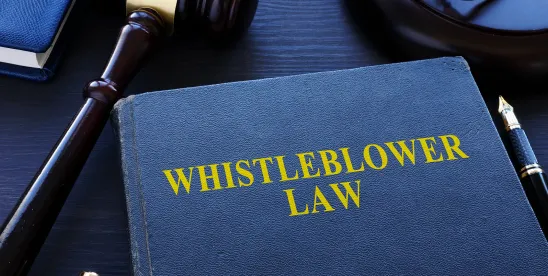Qui Tam Whistleblower Guide
Whistleblowers with evidence of government program fraud can file a qui tam action under the False Claims Act. The process of doing so, however, is unique and opaque.
Qui Tam Claims are Only for Fraud Against the Government
People can blow the whistle on a wide variety of conduct. Only whistleblower claims alleging fraud against a government program, though, can become qui tam actions. These actions, pronounced “key-tam” and standing for a Latin expression about suing on the behalf of the government, are based on allegations made under the False Claims Act (31 U.S.C. §§ 3729 et seq.). This crucial federal statute allows private citizens to prosecute fraud that is being perpetrated against the government. It also permits them to recover a whistleblower award for their efforts.
This limitation to government program fraud is an important one for qui tam claims. Whistleblowers who have evidence of any other sort of wrongdoing, no matter how severe or illegal it is, cannot file a qui tam claim if it does not involve fraud against a government program.
The good news is that there are lots of government programs that can be defrauded, so many whistleblowers can still make use of the qui tam process. Just a few of those government programs include:
- Healthcare programs, like Medicare or Medicaid
- The Paycheck Protection Program (PPP), which issued forgivable loans during the coronavirus pandemic
- Federal mortgage programs, like those managed by the Federal Housing Administration (FHA)
- Federal contracts and grants, including those for defense contractors and scientific advancements
Just a few examples of fraudulent schemes against these federal programs are:
- A hospital billing Medicaid for an emergency room visit that never happened
- A defense contractor requesting payment for 10 missiles when it knows that it only supplied 8
- A business lying about how many employees it has on an application for PPP funding
- A bank manipulating numbers in order to secure an FHA mortgage
If you have evidence of these or any other types of schemes that are defrauding the government, you can become a whistleblower and file a qui tam action under the False Claims Act.
Government Intervention is a Goal for Qui Tam Actions
Like many other types of whistleblower claims, the goal in qui tam actions is generally to persuade a federal law enforcement agency to intervene and take the case over. This is done after the qui tam lawsuit is filed, under seal, in federal court. The relevant law enforcement agency then has 60 days to investigate the claims made in the lawsuit and decide whether to intervene or not. That time period is frequently extended by the court to permit a full investigation.
While getting the agency to intervene will reduce the whistleblower reward that you stand to recover, it also drastically increases the odds that your claim will win: Qui tam actions that have the resources of a federal law enforcement agency behind them are significantly more likely to succeed than those that do not.
Without the intervention of a federal agency, it will be up to you and your legal team to conduct the investigation and uncover the necessary evidence of fraud. Depending on the circumstances, this can be quite difficult and time-consuming.
Retaliation Against Whistleblowers is Forbidden
Because qui tam actions are filed under the False Claims Act, whistleblowers benefit from the Act’s anti-retaliation provision, 31 U.S.C. § 3730(h). This part of the law makes it illegal for employers to retaliate against employees for engaging in lawful whistleblowing activities. That retaliation can take the forms of:
- Termination
- Suspension
- Demotion



 />i
/>i
